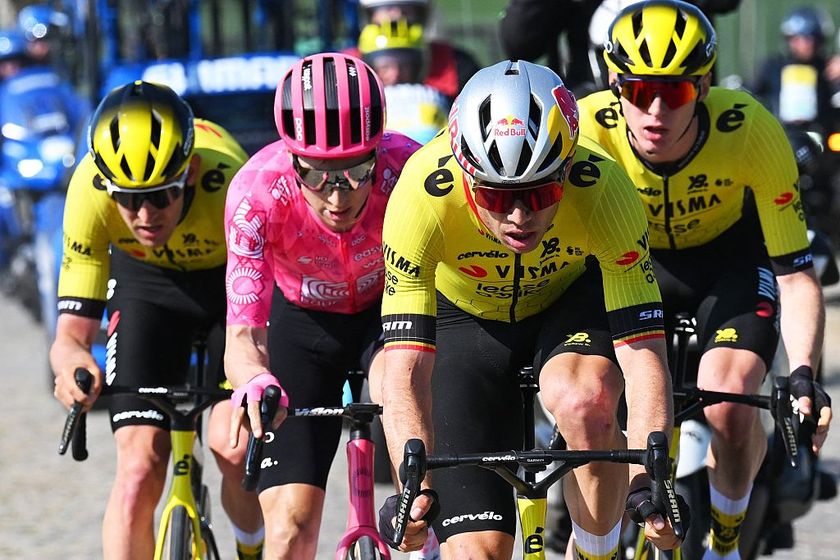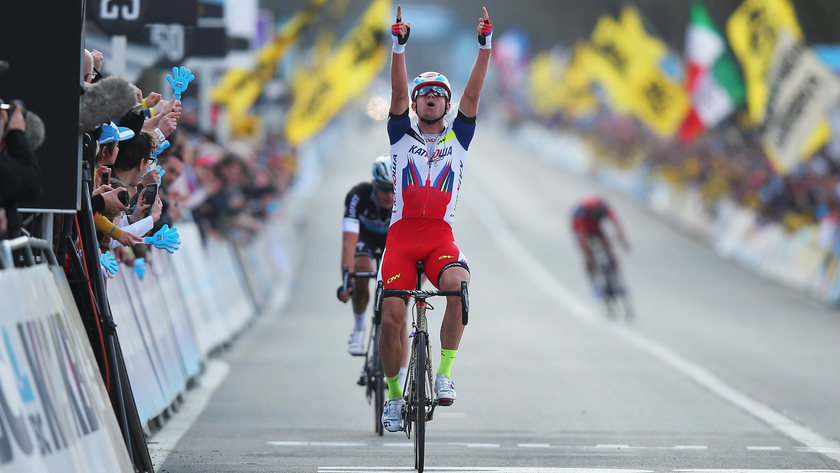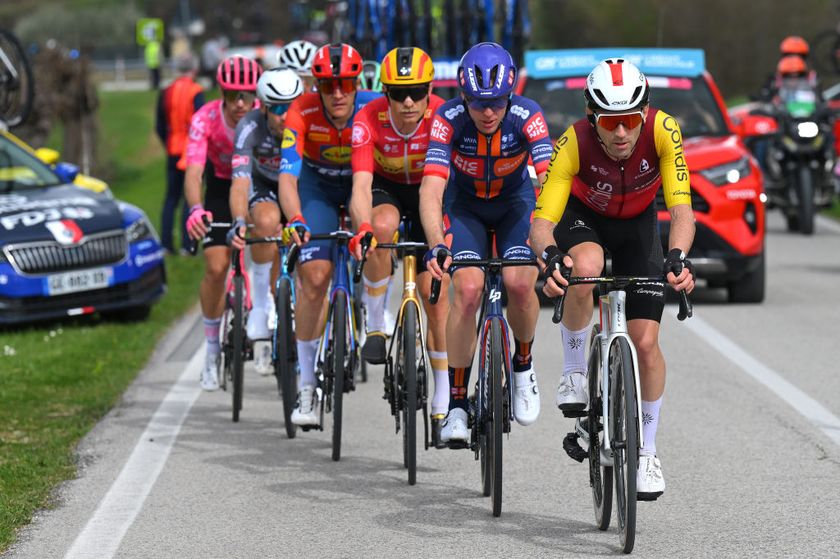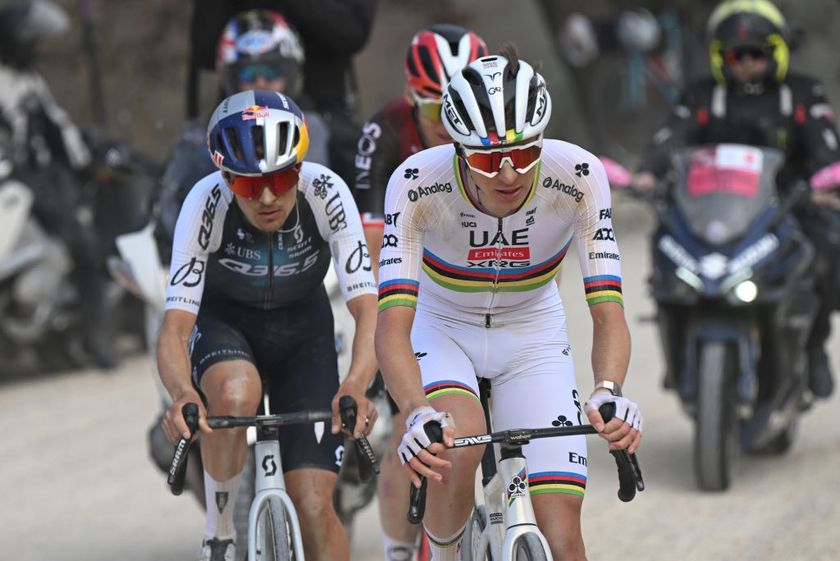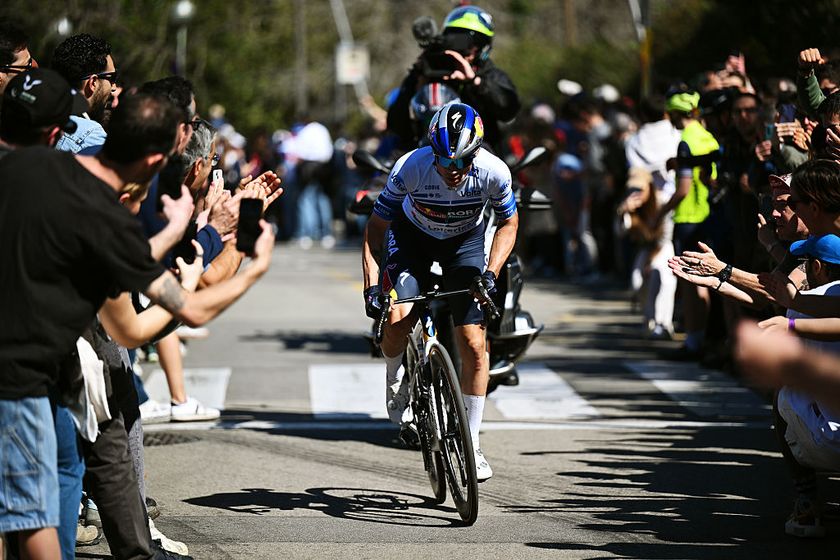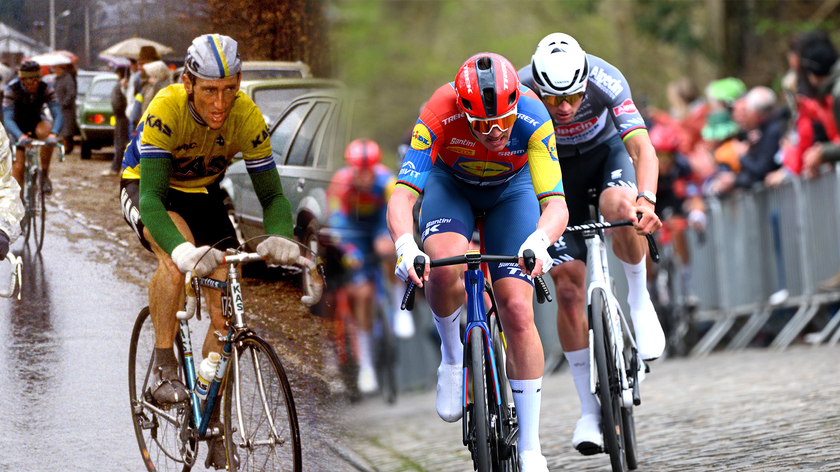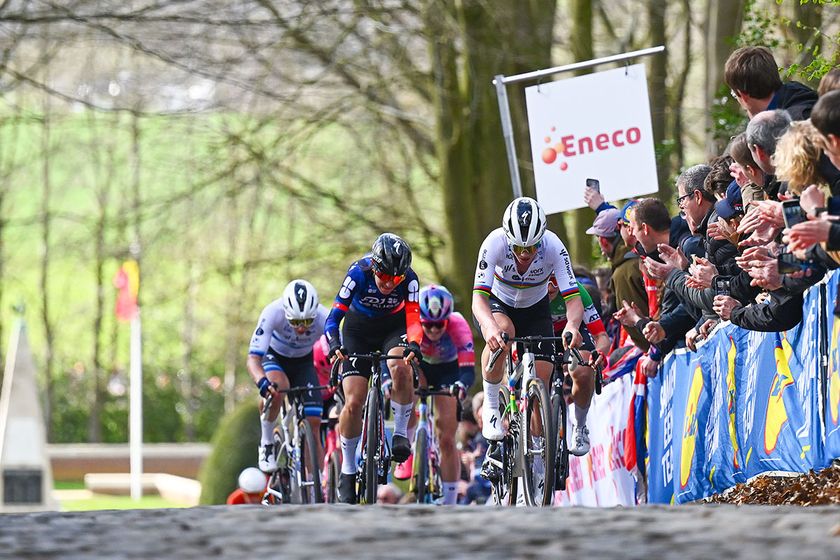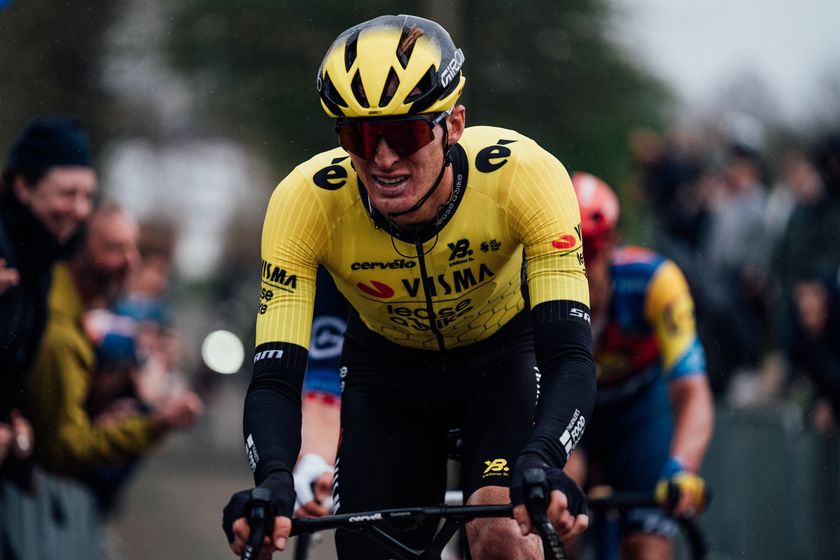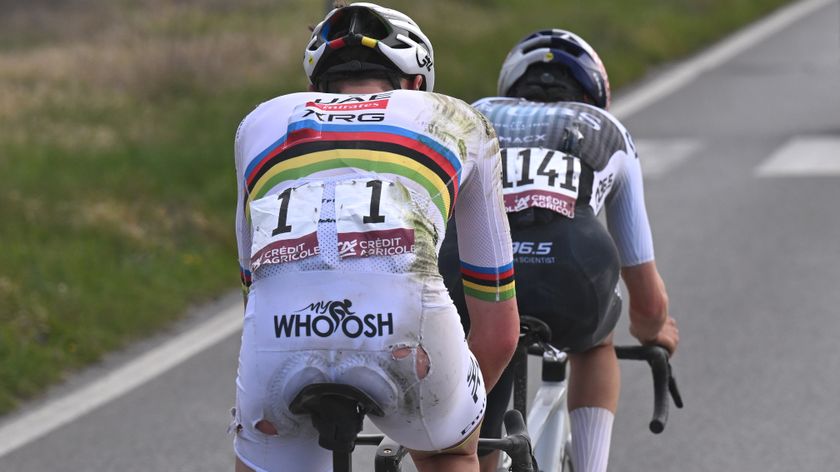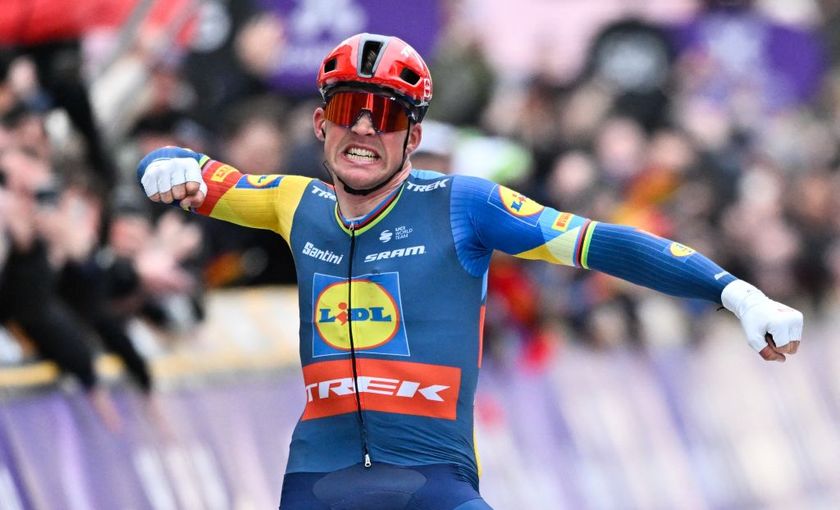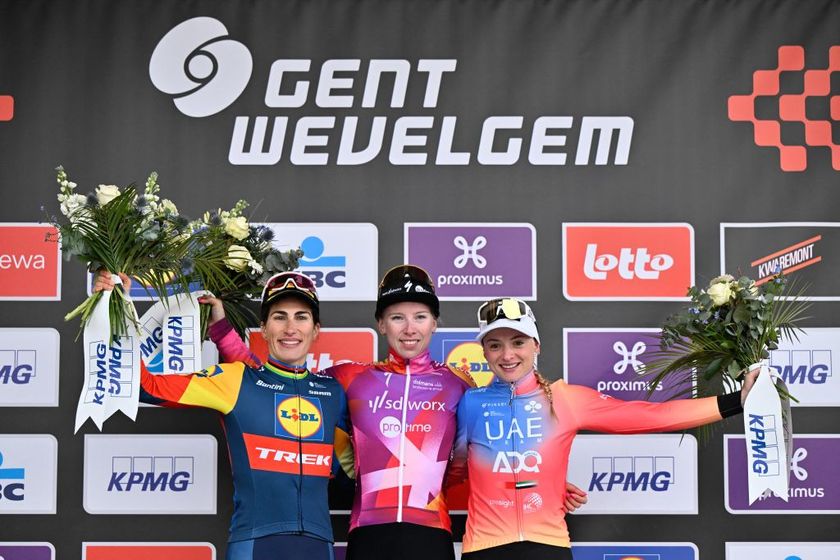Fitness questions and answers for May 16, 2005
Got a question about fitness, training, recovery from injury or a related subject? Drop us a line at...
Form & Fitness Q & A
Got a question about fitness, training, recovery from injury or a related subject? Drop us a line at fitness@cyclingnews.com. Please include as much information about yourself as possible, including your age, sex, and type of racing or riding. Due to the volume of questions we receive, we regret that we are unable to answer them all.
Carrie Cheadle, MA (www.carriecheadle.com) is a Sports Psychology consultant who has dedicated her career to helping athletes of all ages and abilities perform to their potential. Carrie specialises in working with cyclists, in disciplines ranging from track racing to mountain biking. She holds a bachelors degree in Psychology from Sonoma State University as well as a masters degree in Sport Psychology from John F. Kennedy University.
Dave Palese (www.davepalese.com) is a USA Cycling licensed coach and masters' class road racer with 16 years' race experience. He coaches racers and riders of all abilities from his home in southern Maine, USA, where he lives with his wife Sheryl, daughter Molly, and two cats, Miranda and Mu-Mu.
Kelby Bethards, MD received a Bachelor of Science in Electrical Engineering from Iowa State University (1994) before obtaining an M.D. from the University of Iowa College of Medicine in 2000. Has been a racing cyclist 'on and off' for 20 years, and when time allows, he races Cat 3 and 35+. He is a team physician for two local Ft Collins, CO, teams, and currently works Family Practice in multiple settings: rural, urgent care, inpatient and the like.
Fiona Lockhart (www.trainright.com) is a USA Cycling Expert Coach, and holds certifications from USA Weightlifting (Sports Performance Coach), the National Strength and Conditioning Association (Certified Strength and Conditioning Coach), and the National Academy for Sports Nutrition (Primary Sports Nutritionist). She is the Sports Science Editor for Carmichael Training Systems, and has been working in the strength and conditioning and endurance sports fields for over 10 years; she's also a competitive mountain biker.
Eddie Monnier (www.velo-fit.com) is a USA Cycling certified Elite Coach and a Category II racer. He holds undergraduate degrees in anthropology (with departmental honors) and philosophy from Emory University and an MBA from The Wharton School of Business.
Eddie is a proponent of training with power. He coaches cyclists (track, road and mountain bike) of all abilities and with wide ranging goals (with and without power meters). He uses internet tools to coach riders from any geography.
Get The Leadout Newsletter
The latest race content, interviews, features, reviews and expert buying guides, direct to your inbox!
David Fleckenstein, MPT (www.physiopt.com) is a physical therapist practicing in Boise, ID. His clients have included World and U.S. champions, Olympic athletes and numerous professional athletes. He received his B.S. in Biology/Genetics from Penn State and his Master's degree in Physical Therapy from Emory University. He specializes in manual medicine treatment and specific retraining of spine and joint stabilization musculature. He is a former Cat I road racer and Expert mountain biker.
Since 1986 Steve Hogg (www.cyclefitcentre.com) has owned and operated Pedal Pushers, a cycle shop specialising in rider positioning and custom bicycles. In that time he has positioned riders from all cycling disciplines and of all levels of ability with every concievable cycling problem.They include World and National champions at one end of the performance spectrum to amputees and people with disabilities at the other end.
Current riders that Steve has positioned include Davitamon-Lotto's Nick Gates, Discovery's Hayden Roulston, National Road Series champion, Jessica Ridder and National and State Time Trial champion, Peter Milostic.
Pamela Hinton has a bachelor's degree in Molecular Biology and a doctoral degree in Nutritional Sciences, both from the University of Wisconsin-Madison. She did postdoctoral training at Cornell University and is now an assistant professor of Nutritional Sciences at the University of Missouri-Columbia where she studies the effects of iron deficiency on adaptations to endurance training and the consequences of exercise-associated changes in menstrual function on bone health.
Pam was an All-American in track while at the UW. She started cycling competitively in 2003 and is the defending Missouri State Road Champion. Pam writes a nutrition column for Giana Roberge's Team Speed Queen Newsletter.
Dario Fredrick (www.wholeathlete.com) is an exercise physiologist and head coach for Whole Athlete™. He is a former category 1 & semi-pro MTB racer. Dario holds a masters degree in exercise science and a bachelors in sport psychology.
Scott Saifer (www.wenzelcoaching.com) has a Masters Degree in exercise physiology and sports psychology and has personally coached over 300 athletes of all levels in his 10 years of coaching with Wenzel Coaching.
Kendra Wenzel (www.wenzelcoaching.com) is a head coach with Wenzel Coaching with 17 years of racing and coaching experience and is coauthor of the book Bike Racing 101.
Steve Owens (www.coloradopremiertraining.com) is a USA Cycling certified coach, exercise physiologist and owner of Colorado Premier Training. Steve has worked with both the United States Olympic Committee and Guatemalan Olympic Committee as an Exercise Physiologist. He holds a B.S. in Exercise & Sports Science and currently works with multiple national champions, professionals and World Cup level cyclists.
Through his highly customized online training format, Steve and his handpicked team of coaches at Colorado Premier Training work with cyclists and multisport athletes around the world.
Brett Aitken (www.cycle2max.com) is a Sydney Olympic gold medalist. Born in Adelaide, Australia in 1971, Brett got into cycling through the cult sport of cycle speedway before crossing over into road and track racing. Since winning Olympic gold in the Madison with Scott McGrory, Brett has been working on his coaching business and his www.cycle2max.com website.
Richard Stern (www.cyclecoach.com) is Head Coach of Richard Stern Training, a Level 3 Coach with the Association of British Cycling Coaches, a Sports Scientist, and a writer. He has been professionally coaching cyclists and triathletes since 1998 at all levels from professional to recreational. He is a leading expert in coaching with power output and all power meters. Richard has been a competitive cyclist for 20 years
Andy Bloomer (www.cyclecoach.com) is an Associate Coach and sport scientist with Richard Stern Training. He is a member of the Association of British Cycling Coaches (ABCC) and a member of the British Association of Sport and Exercise Sciences (BASES). In his role as Exercise Physiologist at Staffordshire University Sports Performance Centre, he has conducted physiological testing and offered training and coaching advice to athletes from all sports for the past 4 years. Andy has been a competitive cyclist for many years.
Michael Smartt (www.cyclecoach.com) is an Associate Coach with Richard Stern Training. He holds a Masters degree in exercise physiology and is USA Cycling Expert Coach. Michael has been a competitive cyclist for over 10 years and has experience coaching road and off-road cyclists, triathletes and Paralympians.
Kim Morrow (www.elitefitcoach.com) has competed as a Professional Cyclist and Triathlete, is a certified USA Cycling Elite Coach, a 4-time U.S. Masters National Road Race Champion, and a Fitness Professional.
Her coaching group, eliteFITcoach, is based out of the Southeastern United States, although they coach athletes across North America. Kim also owns MyEnduranceCoach.com, a resource for cyclists, multisport athletes & endurance coaches around the globe, specializing in helping cycling and multisport athletes find a coach.
Fibular head pain
Haematology
Breathing efficiency
Baden Cooke's falling technique
Left leg/hip/pelvis problems
Neck and shoulder pain
Shoe soles
BMX training advice
Fibular head pain
I have been a keen amateur road cyclist for 15 years. This has included racing and lots of fast group rides, as well as a daily commute to work (10 km each way). Seven years ago I had surgery on my left biceps femoris tendon where it attaches to the fibular head in order to resolve chronic soreness and pain that had kept me off the bike for over two years. During the early chronic period of the injury, prior to giving up all cycling, I switched from Look to Time pedals in an attempt to resolve the problem.
A local orthopaedic surgeon eventually diagnosed that my left fibular head was large in size relative to my right leg (this was clearly observable when pointed out to me), and that as a consequence of this and hard riding the tendon had become irritated where it contacted the fibular head, resulting in the formation of a bursa on the tendon - why this irritation should have happened in the first place was not really explained. My surgeon removed the bursa and part of the lateral side of the fibular head, and re-attached the affected parts of the tendon. I was back on the bike in 12 weeks and soon back racing. I was never bothered by the injury again, no matter how hard I trained or rode. However, I have recently started riding a mountain bike to work. The bike came with SPD pedals.
After only a few weeks of commuting on it, I am experiencing the same old familiar soreness in my left fibular head again. My sensation with the SPD pedals is that they don't have enough float, and that I want to rotate my heel inwards against the release tension all the time, which I end up feeling as a slight rotational pressure in my knee. My MTB shoes are very old (2nd hand) and don't seem to provide any capacity for to rotate the cleat adequately to relieve this pressure. I note from research that the biceps femoris is a rotator of the lower leg. Is the lack of rotational freedom from the SPD pedals likely to be the source of this injury?
I am now considering whether my Look pedals (and Carnac shoes) contributed to the original injury in the same way, as I recall always having the left cleat rotated as far as possible inwards to reduce this rotational pressure. In any case, is there a way to obtain more float from the SPD pedal/cleat combination. I was intending to buy some new MTB shoes anyway, so should I stick to the SPD pedals or get something with some more float? Are Eggbeaters a good choice for float? I am still using the Time pedals on my road bike, and am thinking of upgrading to RXS. Is this also a good choice for float?
Anthony Cook
Melbourne, Australia
Anthony,
Haematology
For the past four months my blood has not been normal and even with B12, B complex, Folic Acid and Iron supplementation there is no improvement. My Haemoglobin is 14.5, Red Cell Count 4.23 and Haematocrit is 42.7. My MCV and MCH are high. Using legal methods, how do I get my Haemoglobin to 16-18, red Cell Count to 5.50-6.00 and Haematocrit to 48-50? What sort of specialist could help me?
Keith Litten
Hi Keith,
Breathing efficiency
Hello, I'm a 67 year old bike rider who has been cycling from when I was 11 years of age. I'm about 150 pounds and around 5ft 8" in height. My problem is that when I'm out with my mates they can be chatting whilst I am huffing and puffing. I do about 200 miles a week over about 3 days and live in an area of England where every small town or village you either climb up to or descend into thereby a bit of climbing is the norm on the rides I do. I've had the "puff" test at my Doctor's, and my lung function seems to be ok? Any ideas?
George Beeby
Newcastle upon Tyne, England, UK
Hi George
Baden Cooke's falling technique
I watched a video of Baden Cooke's high speed crash, somersault, and walk to the finish line. Did that require some form or style to survive and walk away? Or was he just lucky?
Tom Benson
Minneapolis, Minnesota
Hi Tom,
Left leg/hip/pelvis problems
Firstly, congrats on a fantastic website...it really does have it all if you're a cyclist!
I am 29 years old and just commenced racing this season. I'm 6'2" and weigh 83kg. I raced for two seasons when I was much younger (16/17yrs old) but have not been participating in any sport at a competitive level until this season. Over the years I have been a regular gym attendee but have undoubtedly spent more time weight training than doing aerobic exercise. Since getting into the cycling training and reducing weight training last September/October my bodyweight has come down by 10kg and seems stable now at around 83kg.
I started racing at entry level, cat 3 here, had some good results and within a few weeks of the season commencing was upgraded to cat 2. But things have basically come to a grinding halt since then as I am suffering from an injury to my left leg, which seems to be originating in my hip/lower back. This is now inhibiting me from riding, as the pain means that spending more than about an hour on the bike is just too uncomfortable. It is not a very sharp pain but more like a numbness which seems to start where my pelvis/left hip is in contact with the saddle (is this the ischium? Feels like it's coming from the middle of the hip joint) and goes down the back of my left hamstring. The pain gets worse the longer I ride. There is also a lump of soft tissue where the hamstring meets the knee joint and although this is not in itself painful it seems a bit strange. I have been advised that my left leg could be shorter than the right (especially as I broke my ankle six years ago resulting in a plate and 12 screws being inserted; the plate is since removed, but four screws remain) but I haven't had an x-ray or scan to confirm this. Any discrepancy in leg length is probably more likely to be functional due to muscle tightness around the hip/hamstrings/hip flexors etc, but having said that I have not experimented with any packers/insoles etc.
Your recent posting "Leg Length Discrepancy - can't dial it in" struck a chord with me as I feel a distinct weakness on my left side compared to my right, and many of the symptoms described in this article apply to my situation. The power is simply not there in my left leg, my lower back/lumbar region on one side gets sore on intense or long rides, my left leg does not tense/flex with the same strength as the right in any position. I have adjusted cleat and saddle height positions and although some differences in power output have been noticable the problem in the left leg does not change. The same symptoms occur when I'm on the bike as when I'm in any seated position for a prolonged period which is a problem as my job involves sitting at a desk nearly all day, driving also triggers the same pain but unfortunately being on the bike seems to aggravate it most.
I have been going to physio the last 5 weeks. My core strength was not particularly good and my flexibility not great (although I always stretch) but I have been diligently doing all exercises and stretches given and implemented recommendations to adjust my work station and posture to ensure I am sitting correctly and am aware of my posture/core muscles at all times but ultimately the symptoms are persisting. My physio had expected me to react better to the regime than I have and for that reason I am going for x-rays etc. next week. Neither my Doctor or physio has any explanation as to what the lump at the back of my left knee might be.
Is this something you have come across before? I am determined to get over this bump but so far I just seem to be going backwards. Any advice is hugely appreciated. Thank you.
Neill Delahaye
Dublin, Ireland
Neill,
I will leave it up to the health professional panellists to comment on the soft bump behind your knee but otherwise: You are unsure whether you have a measurable or functional discrepancy in leg length. Find out. Have an X -ray, scan or whatever taken in a standing,load bearing position with upper and lower legs measured between joint centres and any discrepancies in the pelvis noted. This way the current state of play can be known.
Neck and shoulder pain
Hi there! About two months ago I bought a mountain bike (Giant Iguana 21in ), shoes and cleats, and started riding 30 mins a day on sealed roads for about 3 weeks and for the last four weeks have switched to 2 hour rides each Saturday and Saturday on forest trails and gravel roads. There is a decent mix of uphill and minor technical riding. I haven't ridden a bike (apart from the gym!) for about 15 years.
Right from the start I have suffered chronic, sharp, pains at the top of my shoulder blades and back of my neck! I can't seem to do anything to ease it. I am a 40 year old 6ft tall female, with a short torso and long legs (36in inside leg). I haven't had a fitting for the bike so I just moved the seat to the recommended height, and the bike shop boys sorted out the shoes and cleats (without me in them).
I am wondering whether my short body is forcing me to strain forward too much, and strain to lift my head. I suspect there are a few things I can do to improve matters other than get a smaller frame. Any thoughts would be greatly appreciated!
Nina
Sometimes I think that shops need to think a little harder about how they do their jobs. I wish I could get someones cleat position in the right place without their feet in them! I would love to learn that one!
Shoe soles
I recently picked up a pair of DMT ultimax shoes. The shoes fit my feet perfectly, yet the original soles are pretty flat. Because of this I decided to try Bill Peterson's Powersoles, with a metatarsal pad, to help with my high arches.
They felt really good on a hill climb I just did, yet these soles raise my foot about 0.5-1 cm higher than the original soles. Will that affect me in anyway?
The metatarsal pads also raise my toes a lot; this helped take away any burning pain so far, but also makes my shoe a lot more cramped. While with the regular soles the shoes fit perfectly, (minus the void) I usually get some "burning" by the ball of my foot - during a long ride, or when I'm powering up a hill. And without higher arches, it felt like there was nothing under my foot, which in some cases gave me a weird stretching/painful feeling in my arch.
Colin Jaskiewicz
It sounds like you have been straining the plantar fascia. Get some cork bartape and build yourself an arch support underneath your standard insoles. You will need to use more than one layer and taper it so it is thicker on the inside towards the crank arm and less thick as the arch support moves inboard. Remove the insoles, stand on them with bare feet and play around with the homemade arch support and once it feels good, ride the bike and test them out and modify as necessary. If this works for you the burning sensation will disappear and you will have more room in the toebox. The only obvious trap is that if you use bartape or something similar it will compress over time and need to be changed periodically.
BMX training advice
I recently returned to bmx racing 2 months ago after 20 years away. In the intermediary years I have surfed, played soccer and done squats and followed a basic weight training program; the squats I performed seem to have given me more power from the start than in my teenage years, and I am now 36!
I find myself in the front couple of riders going into the second straight, yet here it all goes downhill from there - my legs literally fail me, and start to cease. My manualling and jumping needs improving, but I was wondering if you could suggest a good routine; would it focus on sprinting or cardio? To remedy this problem, I have access to a training cycle and heart rate monitor or can train outdoors on my bmx. Any tips gratefully received.
Jon
Hi Jon,
